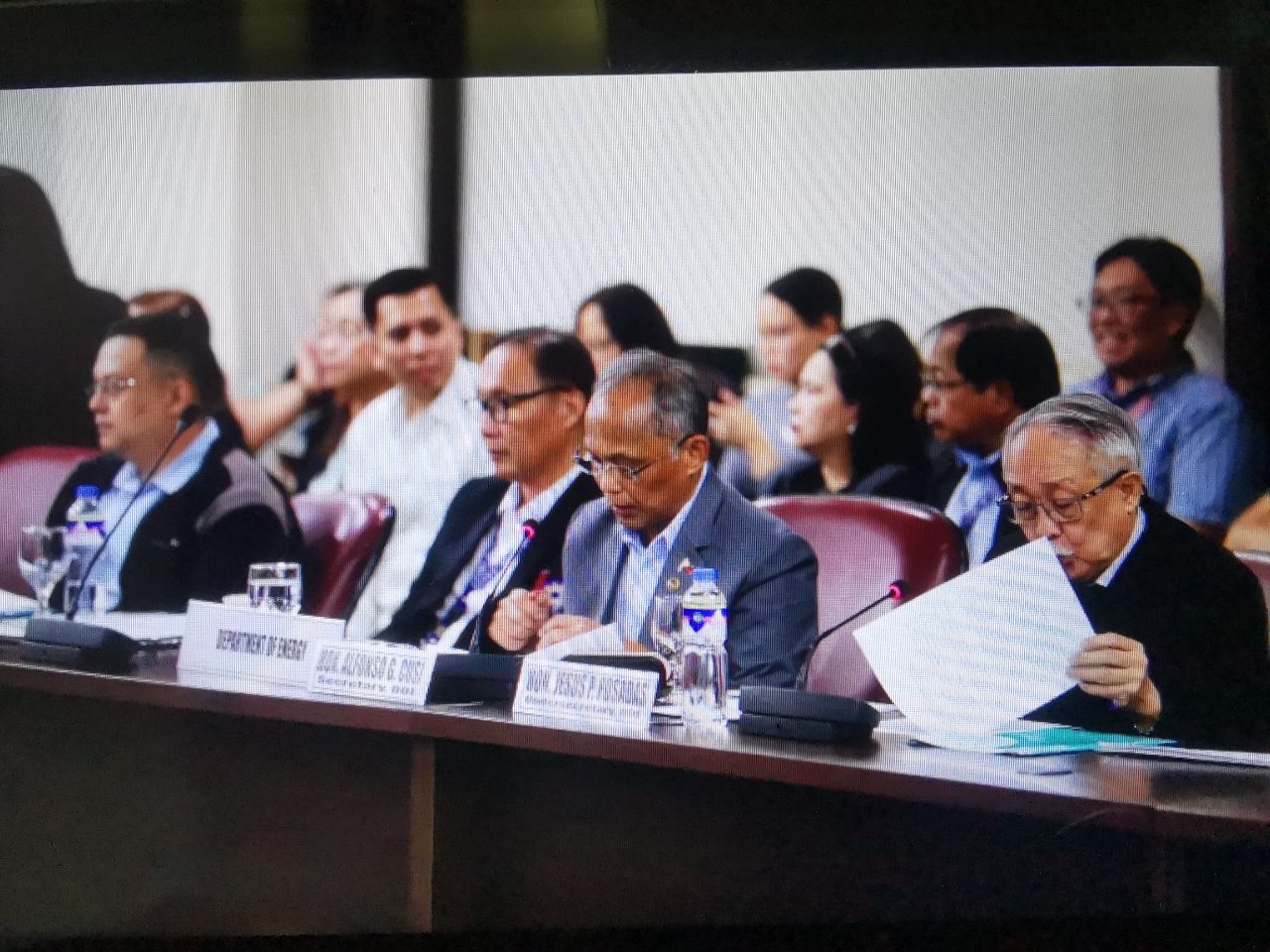The Department of Energy (DOE) Secretary Alfonso Cusi has issued the guidelines on use of Energy Regulations 1-94 (ER 1-94) Program funds to aid host communities of energy generating facilities and/or energy resource developers in the fight against the coronavirus disease 2019 (COVID-19).
“For our country to effectively and efficiently ‘flatten the curve’, we must ensure that all our local government units have the resources that would aid in containing, mitigating, and eventually eliminating the spread of COVID-19 in their respective jurisdictions. Releasing available ER 1-94 funds to host communities would definitely add an additional boost to their on-going efforts to combat the disease,” Cusi was quoted in a statement.
With the utilization of ER 1-94 program, energy generation facilities are entitled to PhP 0.01 per kilowatt-hour of the total electricity sales of generation companies and energy resource developers to finance electrification, livelihood and development projects.
Under the newly signed Department Circular (DC), ER 1-94 can be used to strengthen measures against the COVID-19.
It also aims to fulfill the following objectives, as stated by the DOE:
- to provide impetus to host local government units (LGUs) to align with the national government in providing ways to mitigate, if not contain, the transmission of COVID-19;
- to help provide host LGUs sufficient, adequate, and readily available funding to undertake their duty to mitigate, if not contain, COVID-19 in their respective areas;
- to rationalize and give host LGUs a framework to utilize ER 1-94 Funds to bolster their efforts to combat the COVID-19 crisis in their respective areas; and
- to provide a doable and efficient manner of disposition and utilization of the ER 1 -94 Funds in light of the urgency of the current national situation.
Aside from the issued objectives stated under the DOE’s department circular, the ER 1-94 will also be used for the following measures, as indicated in the Republic Act 11469, or the “Bayanihan to Heal as One Act”:
- the facilitation of mass testing by providing and constructing facilities and/or acquiring proper medical testing kits to detect COVID-19, including the payment of medical testing and analysis fees;
- provision of an emergency subsidy in the form of non-food items when there are delays or insufficiencies, and to augment existing subsidy programs of the national government to low income households while the State of Public Health Emergency is still in effect;
- ensure the uninterrupted availability and access of essential commodities, particularly food and medicines, via a “mobile market” and the adoption of measures to minimize disruption in the supply chain;
- support feeding programs of national government agencies and initiation of own feeding programs, including the provision of relief goods for low
-income constituents during the State of Public Health Emergency;
- acquisition of Personal Protective Equipment (PPEs) for frontline medical w
orkers, and medical and other decontamination/disinfecting supplies and equipment, including but not limited to alcohol disinfectants, sanitizers, common medicines, thermo-scanners, and contactless thermometers, respirators and/or ventilators;
- provision, by construction or lease, of additional provincial, city, municipal, or barangay medical facilities, tents, safe holding areas, including quarantine centers and distribution centers, to accommodate the increasing number of patients and medical reliefs;
- electricity cost subsidies to newly constructed facilities of provincial, city, municipal, or barangay hospitals and health clinics, including the increase in electricity demand, as calculated, metered and certified by concerned distribution utilities by reason of COVID-19,
- provision of cremation or burial services to families affected by COVID- 19; and
- other reasonable and tangible measures to contain, mitigate and eliminate the transmission of COVID-19, and manage and mitigate its effects to the community and individuals.
The DC can be extended based on DOE’s determination in the aftermath of the COVID-19 crisis.
“The DOE continues to explore more ways to support the country’s fight against COVID-19,” Cusi said.
